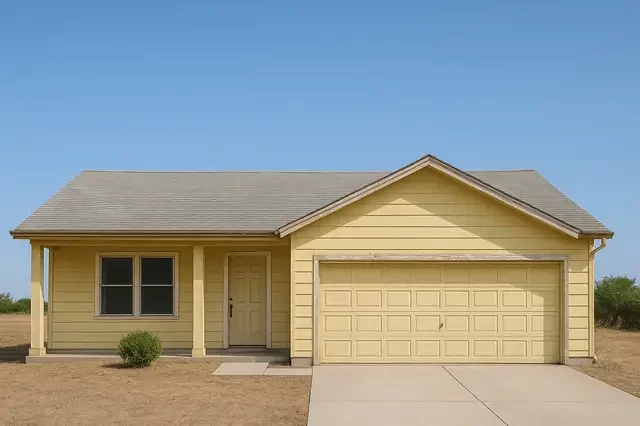Probate Process California Timeline | A Step-by-Step Timeline
If you recently lost a loved one and are wondering how long does probate take in California, you’re not alone. The probate process can be confusing, time-consuming, and emotionally draining—especially when you’re trying to grieve and manage your family’s affairs at the same time. This guide walks you through the probate timeline in California, the key steps involved, and the most common delays that could affect your case.
Whether you’re an executor, a family member, or a beneficiary, understanding how long probate takes in California helps you plan ahead and avoid unnecessary surprises.
What Is Probate and Why Is It Necessary in California?
Probate is the legal process of settling a deceased person’s estate. When someone dies, their assets—like property, bank accounts, or personal belongings—must be transferred to the rightful heirs or beneficiaries. In California, this happens under the supervision of the probate court.
If the person had a will, the named executor oversees the process. If there was no will, the court appoints a personal representative (also called an administrator). Either way, the estate must go through specific legal steps under California probate law.
Some estates can avoid probate altogether, especially if there’s a living trust in place or if the estate qualifies as a small estate. But when probate is required, the timeline depends on several factors.
What Affects the Probate Timeline in California?
Every probate case is different. While some can be resolved in a matter of months, others may take years. Here are the most common factors that impact how long probate takes in California:
Size of the Estate
Small estates with few assets are often quicker to resolve. Larger, more complex estates take longer and require more court involvement.
Presence of a Will or Trust
If the decedent had a valid will or living trust, probate may move faster. Without a will, the court follows intestacy laws, which can lead to delays.
Family Disputes or Contested Wills
Conflicts between heirs or beneficiaries over asset distribution can slow everything down and extend the process significantly.
Creditor Claims and Outstanding Debts
The executor must notify creditors and pay off any valid debts before distributing assets. Unresolved claims can cause major delays.
Court Scheduling and County Delays
Depending on the county—such as Los Angeles or Orange County—the probate court calendar may be backed up, causing extended wait times.
Legal Representation
Working with an experienced probate attorney can help streamline the process, avoid legal mistakes, and reduce the overall timeline.
Step-by-Step Guide to the California Probate Process
Here’s what you can expect during the probate timeline in California:
Step 1: Filing the Probate Petition
The process begins by filing a petition with the probate court in the county where the deceased person lived. This starts the formal probate case.
Step 2: First Probate Hearing
The first court hearing usually takes place 30 to 45 days after the petition is filed. At this hearing, the court officially appoints the personal representative or executor.
Step 3: Notifying Beneficiaries and Creditors
The personal representative must notify all heirs, beneficiaries, and known creditors. Notices are also published in a local newspaper to alert unknown creditors.
Step 4: Inventory and Appraisal of Assets
A complete inventory of the estate’s assets must be prepared. A probate referee may be assigned to appraise the value of real estate, vehicles, accounts, and other property.
Step 5: Paying Debts and Taxes
Before assets can be distributed, the estate must pay off all valid debts, taxes, and final expenses. This includes state and federal taxes and any creditor claims.
Step 6: Final Distribution and Closing the Estate
Once debts are paid, the executor files a final report with the court. After approval at the final hearing, the estate assets are distributed to heirs and the case is closed.
So, How Long Does Probate Take in California?
Typical Timeline for Simple Cases
On average, probate takes 9 to 12 months for straightforward cases with:
- A valid will
- No family disputes
- Minimal creditors
- Limited real estate or business assets
Timeline for Complex Estates
More complicated probate cases may take 1.5 to 2 years or longer, especially if:
- There are family disputes or contested wills
- The estate holds multiple properties or out-of-state assets
- There are unresolved debts or tax issues
Common Causes of Probate Delays
- Disagreements among heirs or beneficiaries
- Missing documents or poor estate planning
- Title issues with real estate
- Delayed court hearings
- Outstanding creditor claims or tax filings
Can Probate Be Avoided in California?
Living Trust
A revocable living trust allows assets to pass directly to beneficiaries without court involvement, saving time and money.
Small Estate Affidavit
If the estate’s value is under California’s small estate threshold, heirs can use a simplified affidavit to transfer assets without going through probate.
Spousal Property Petition
This process allows a surviving spouse to claim community property quickly, without formal probate proceedings.
Tips to Reduce the Time It Takes to Complete Probate
Start With a Solid Estate Plan
Encourage your loved ones to have a valid will, power of attorney, and living trust in place before death. Planning early can prevent delays later.
Choose the Right Executor
A capable and organized executor can help move the process forward smoothly and keep the case on track.
Work With a Probate Attorney
An experienced probate lawyer can guide you through the paperwork, hearings, and creditor claims, avoiding costly errors and court rejections.
Keep Asset Records Organized
Make sure there’s a clear record of all financial accounts, real estate, debts, and personal property to help with the inventory process.
When Should You Speak With a Probate Attorney?
You should consult a probate lawyer if:
- The estate involves multiple properties or business interests
- There are disputes between family members or beneficiaries
- There’s no will or trust in place
- You’re unsure of your responsibilities as executor
- Creditors are making claims against the estate
Many probate attorneys offer a free consultation to help you understand your next steps.
Final Thoughts: How Long Does Probate Take in California?
So, how long does probate take in California? The answer depends on several factors, including the estate’s complexity, the quality of estate planning, and whether there are legal disputes or unresolved debts. Most probate cases take 9 to 12 months, but complex estates can take much longer.
If you’re in the middle of a probate case and need support—whether legal or logistical—don’t go it alone. There are ways to simplify the process and even sell the property for cash without waiting for court delays.
Need Help with Probate or Selling an Inherited House?
If you’re dealing with probate and looking for a simple way to sell the property, we can help. At R&H Distressed Properties, we buy inherited homes in California—fast and as-is. No agents, no repairs, and no commissions.
Get a fair cash offer today and close when you’re ready.

